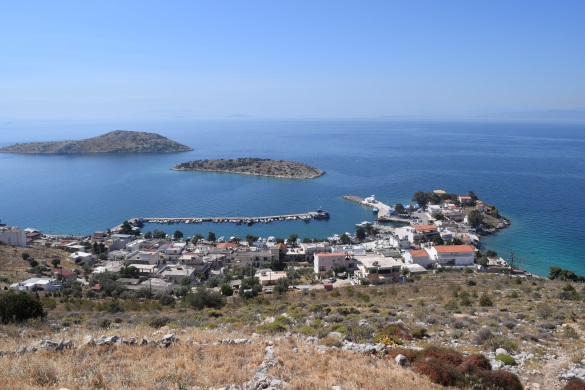
Megarika III – From Sicily to the Black Sea: Latest Research on Ancient Megarian Cities
When: June 27-28th 2024
Where: École française d’Athènes, Athens
Organisers: R.-M. Bérard (CNRS, Aix-Marseille Université) & Th. Lucas (Université de Picardie Jules Verne)
Deadline for application: February 26th 2024
Contacts: reine-marie.berard@univ-amu.fr & t.lucas@u-picardie.fr
This international conference concludes the program ‘AUXMEGA: Migrations, Identities and Networks in the Archaic Greek Mediterranean (Men, Techniques, Knowledge). The Example of Megara Nisaea and Megara Hyblaea[1]’ and constitutes the culmination of two years of scientific collaboration between the Ecole française de Rome and the Ecole française d’Athènes to promote research and training around the two Megarian cities of Megara Niseae and Megara Hyblaea.
This meeting is also in line with two previous conferences dedicated to Megarian cities. The first in 1982, organized by Juliette de la Genière, was devoted to Megara Nisaea, Megara Hyblaea and Selinuns[2]. The second, in 2012, organized by Adrian Robu and Iulian Bîrzescu, was entitled Mégarika. Nouvelles recherches sur Mégare et les cités mégariennes de la Propontide et du Pont-Euxin. Archéologie, épigraphie, histoire[3]. More than ten years after the latter, this new meeting aims to update the knowledge and networks of Megarian research by presenting the latest results of works in progress not only in Megara Nisaea, but also in its colonies of Sicily, Propontis and the Black Sea. Historical and epigraphic work, as well as archaeological excavations carried out over the last ten years, have indeed yielded important new data on the urban structure, organization of the territory, funerary practices, institutions and artisanal productions of Megarian cities. Through the presentation of these results, we wish to question the nature of the links which existed between the metropolis and the other Megarian cities and to consider the variety of scales of the networks of circulation and exchange, – commercial and cultural – in which they take place. Finally, we wish to highlight the share of developments specific to each city, particularly in light of exchanges on a local scale with the surrounding Greek and non-Greek populations. By bringing together Greek, French, Italian, Romanian, Turkish, German and English-speaking researchers, we wish to break down the barriers which too often compartmentalize research on Greek colonization by country or area of the Mediterranean and thus encourage new scientific collaborations on a par with the networks of the ancient Megarian cities themselves.
Proposals should be written in English (circa 300 words) and submitted by Monday, February 26th.
Contacts : reine-marie.berard@univ-amu.fr & t.lucas@u-picardie.fr
[1] AMX-21-PEP-025 (PI: R.-M. Bérard) financed by the Initiative d’excellence A*Midex and France 2030.
[2] La Genière (ed.), « Chronique d’une journée mégarienne ». Mélanges de l’école française de Rome 95, no 2 (1983), p. 617‑50. https://doi.org/10.3406/mefr.1983.1385.
[3] Robu, Bîrzescu (eds.), Mégarika. Nouvelles recherches sur Mégare et les cités mégariennes de la Propontide et du Pont-Euxin. Archéologie, épigraphie, histoire. Actes du colloque international de Mangalia, 8-12 juillet 2012. Paris: De Boccard, 2016.

